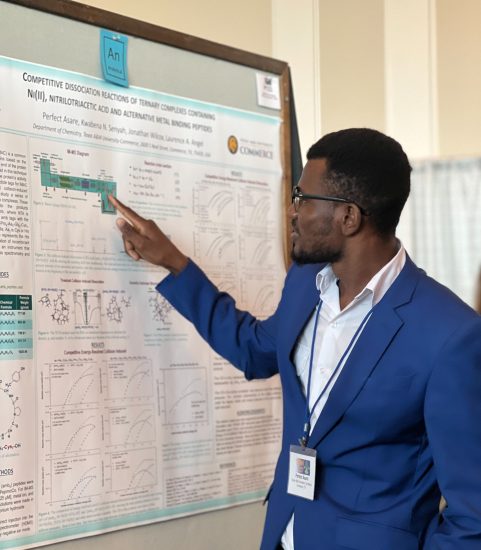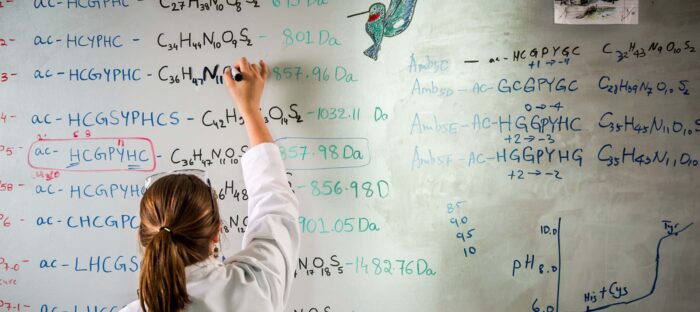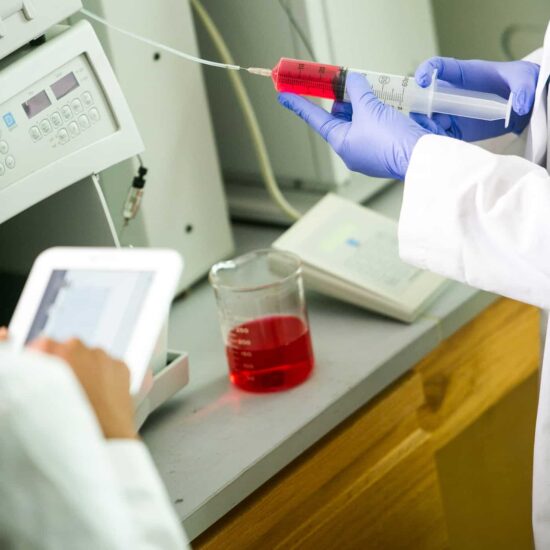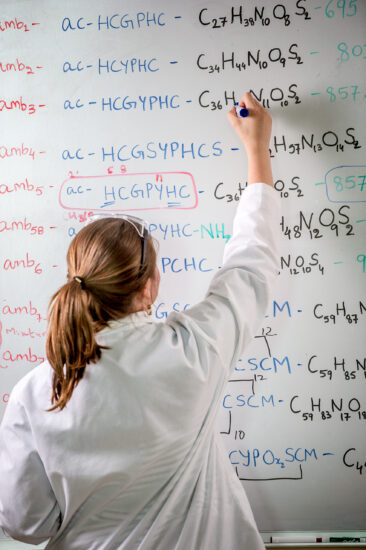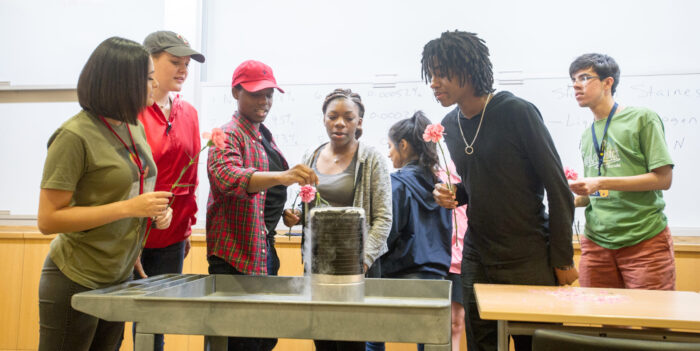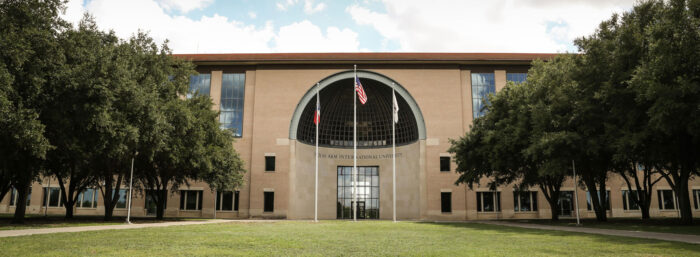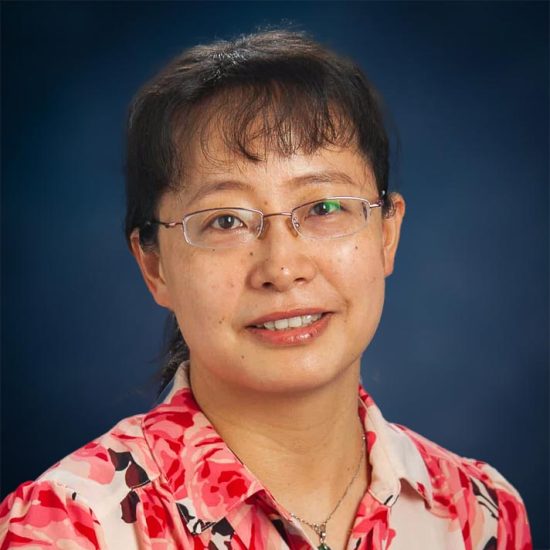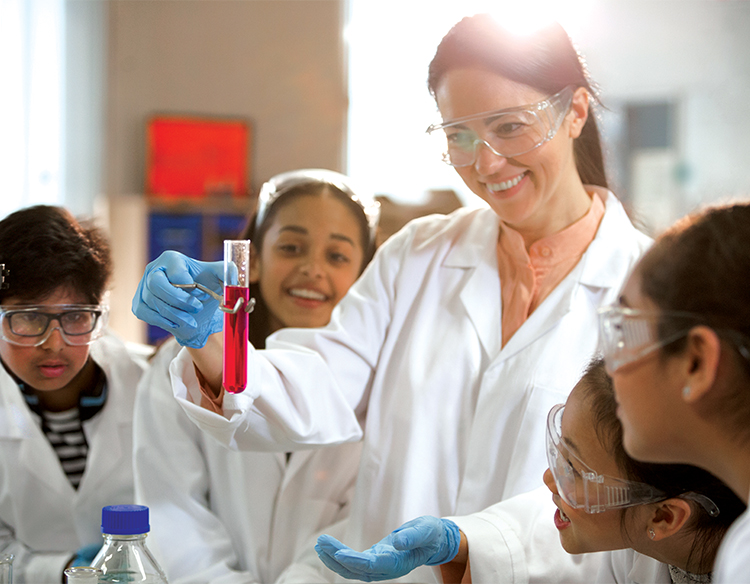
- On this page:
-
 Programs
Programs
-
 News
News
-
 Organizations
Organizations
-
 REU
REU
-
 Scholarships
Scholarships
-
 Research
Research
-
 Contact
Contact
-
 Contact Us
Contact Us
Department of Chemistry
Communicate Ideas and Advance Innovation
Take a deeper look into the world at the molecular level with a degree in chemistry.
Our competitive undergraduate programs are recognized by the American Chemical Society and meet their extensive academic requirements. Explore numerous independent research opportunities at the undergraduate and graduate levels and discover a wide range of career options in the advancing field of chemical sciences. Our programs prepare you for work in the STEM industry, academia, government, non-profit and entrepreneurship.
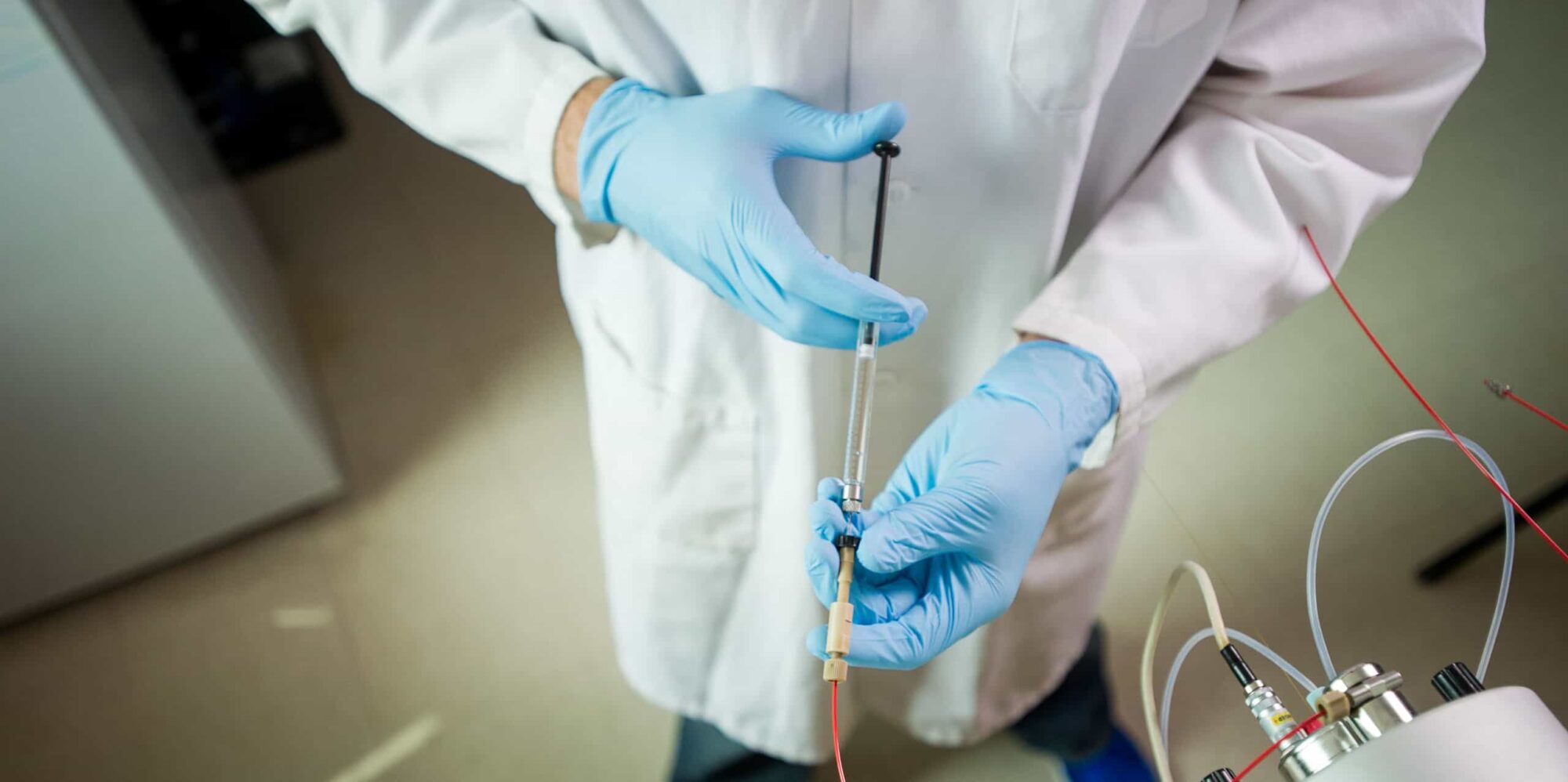

Welcome from the Department Head
Greetings,
I'm Tom West and I would like to welcome you to the Department of Chemistry at East Texas A&M. Our well-rounded and flexible programs prepare students for a wide variety of careers in industry, teaching and research. Both undergraduate and graduate students have the opportunity to collaborate with faculty members in rigorous research projects in analytical chemistry, organic chemistry, inorganic chemistry, physical chemistry and biochemistry. If you are interested in the research of one of our faculty members, feel free to contact them.
Explore Our Programs
Chemistry (BS)
Whether your interest is in the structure and chemical reactions in living systems, properties and reactions of organic or inorganic minerals and compounds, or how matter behaves on a molecular level, a degree in chemistry will prepare you for industry career or graduate studies. A wide variety of careers are available to chemists in industry, the government or academia. Options include, but are not limited to, chemical health and safety, toxicology, oil and petroleum, forensics, textiles, agriculture and food, polymers, environmental protection, and research.
Chemistry (BS) Teaching Emphasis
There is a growing need for STEM educators. A degree in chemistry with a teacher certification will allow you to combine your passion for chemistry and the classroom. You’ll take courses in general and organic chemistry, physics, and biology. Our program offers specialized teaching courses for chemistry teachers including roles and responsibilities for STEM educators, technology-infused curriculum, and project-based learning in STEM. You’ll be required to complete a teaching residency senior year. After graduating, you’ll be certified to teach science at the secondary level (grades 7-12).
Chemistry (MS)
You can select a thesis study and a professional master degree. If you are interested in furthering your studies in chemistry, this program will enable you to work closely with faculty members with similar research interests. Faculty research interests within the department include metal binding, surface chemistry for industrially-important catalysts, ionic liquids as catalysts in organic reactions, porphyrin-based anion receptors, bacterial nucleic acid metabolism and green chemistry approaches. The non-thesis options include a professional master degree in chemistry, professional chemical business degree, or professional chemical education degree.
Faculty Spotlight
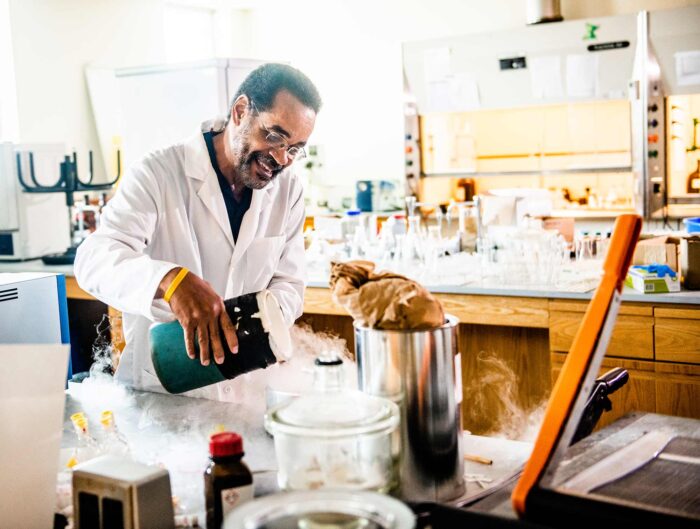
Allan Headley, Ph.D.
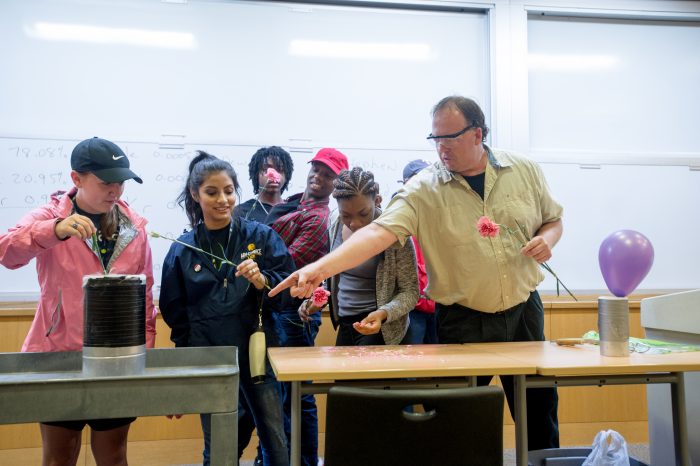
Stephen Starnes, Ph.D.
Our Facilities
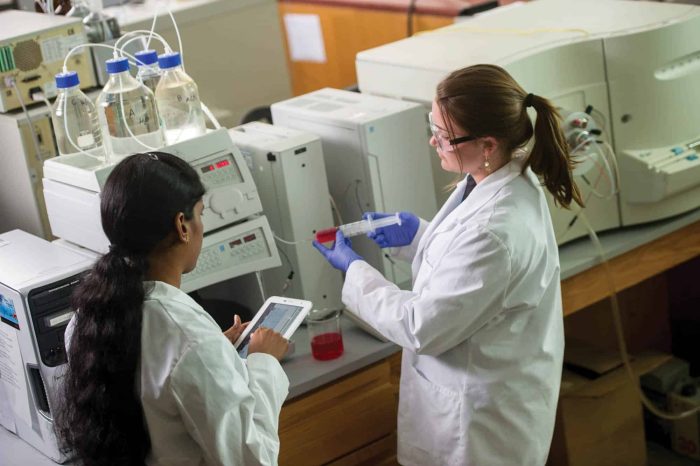
Waters ES-IM-TOF Mass Spectrometer
Characterize the structure of chemical compounds with our mass spectrometer. You’ll have access to this instrument in research courses such as CHEM 418. The mass spectrometer is housed in McFarland Science Building Room 309.
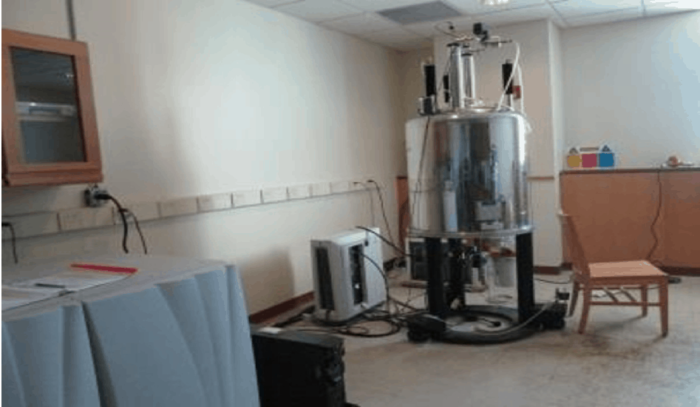
Varian AS400 NMR
Our nuclear magnetic resonance spectrometer characterizes the structure of primarily organic chemicals. You’ll have the opportunity to use this instrument in research courses such as CHEM 418.rn
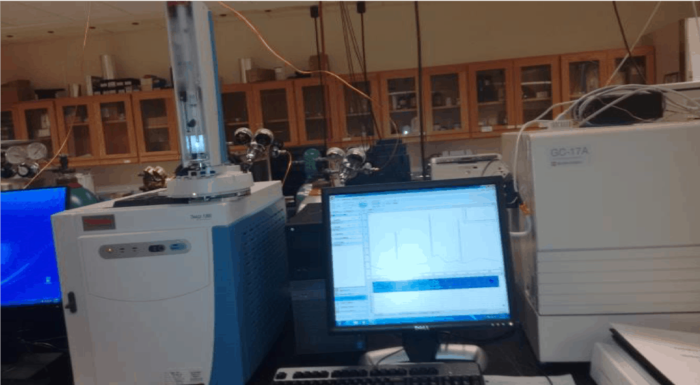
Thermo Fisher Gas Chromatograph
You’ll use the gas chromatograph in research courses such as CHEM 418 to characterize the structure of oils and fatty acids. This instrument is housed in McFarland Science Building Room 305. rn
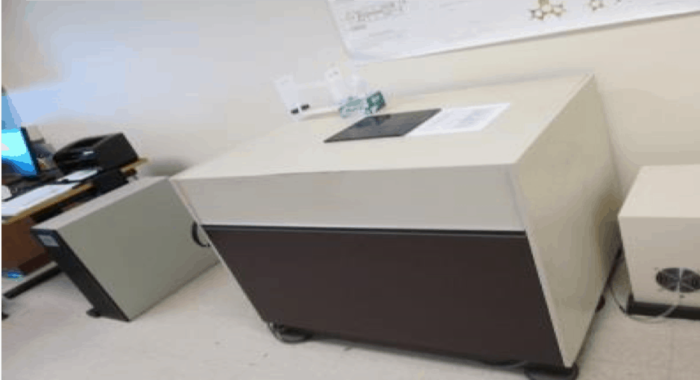
Anasazi 90 MHz NMR
Characterize the structure of synthesized organic compounds with our Anasazi spectrometer. You’ll use this instrument in your organic chemistry laboratories (CHEM 2123/CHEM 2125). This instrument is housed in McFarland Science Building Room 309. rn
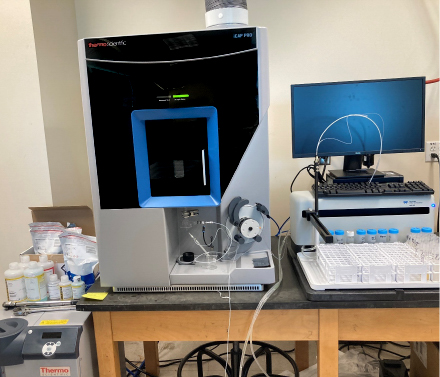
Thermo Fisher ICP-OES System
Our new Thermo Fisher Inductive Coupled Plasma- Optical Emission Spectroscopy system is used to perform trace metal analysis with high precision. You'll have the opportunity to use this system in research courses such as CHEM 418.
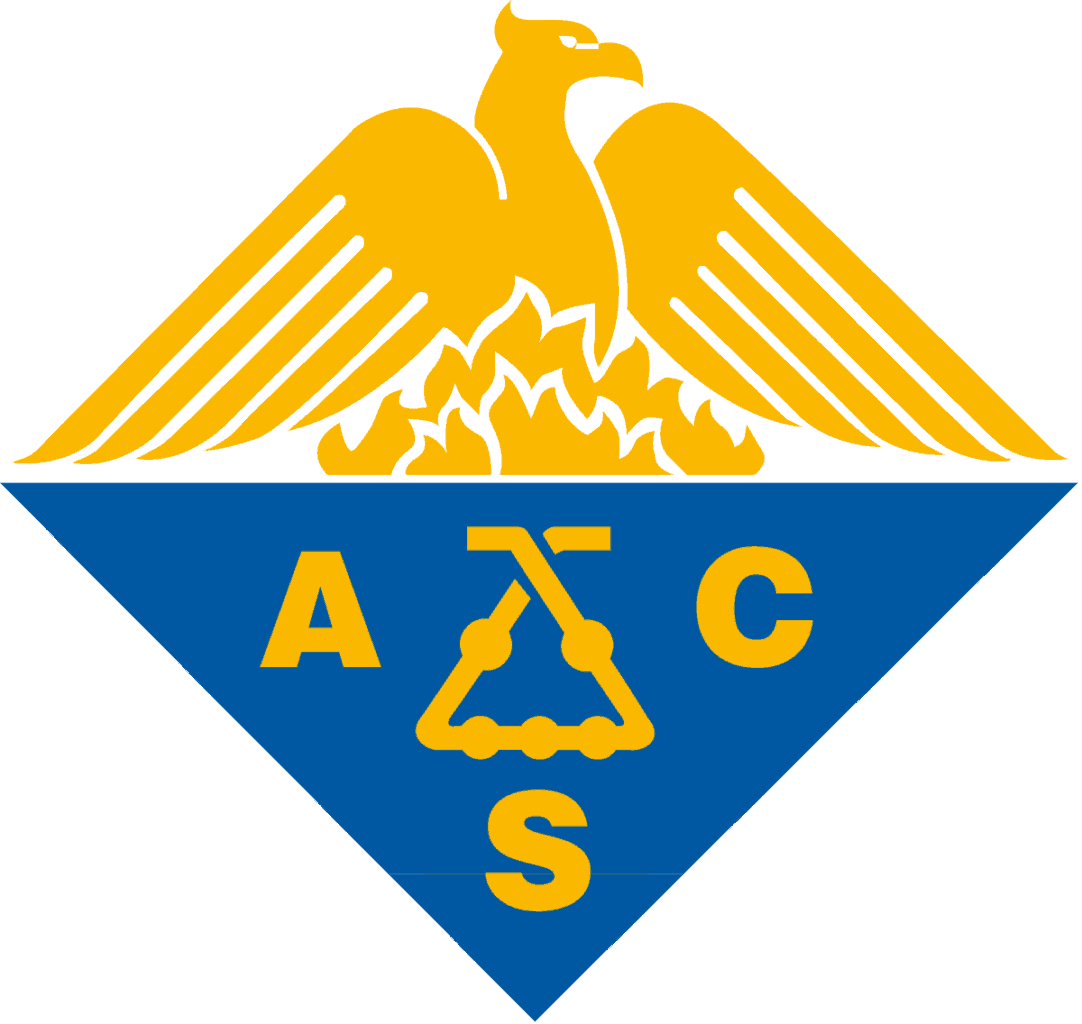
ACS Accredited
Our programs are approved by the American Chemical Society (ACS) and are designed to provide industry readiness. The ACS promotes excellence in chemistry education and research at institutions across the United States. ACS approved programs must meet rigorous chemistry standards and education requirements. Employers often prefer hiring students who graduated from ACS accredited programs.
News Spotlights
Student Organizations
Student Affiliates of the ACS
The Student Affiliates of the American Chemical Society brings together students interested in chemical sciences and enriches their academic experience. You do not have to be a chemistry major to join. The Student Affiliates sponsor guest speakers, social events, field trips, tutoring services, revenue-generating events and various other activities throughout the academic year.
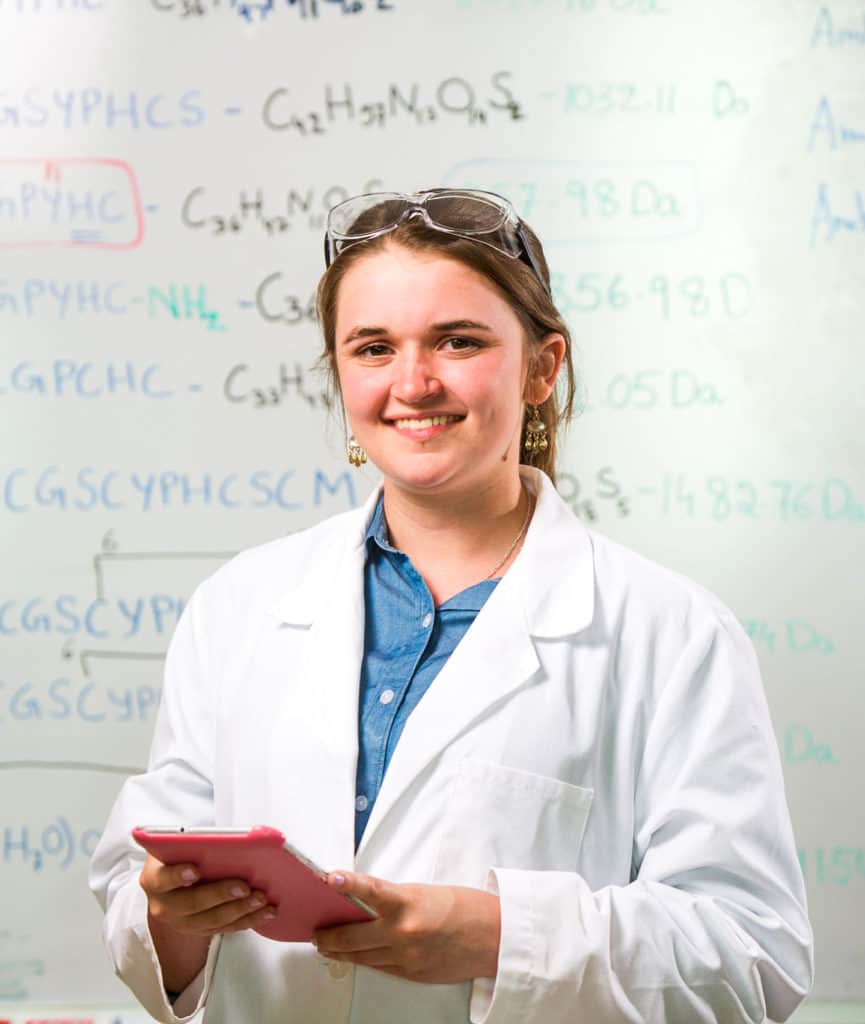
Student Support
Research Experience for Undergraduate Students (REU)
REU is a unique research opportunity for Northeast Texas community college students interested in chemistry. Offered at East Texas A&M, this summer-long program provides a rewarding research experience.
Scholarships
As a chemistry student, you’ll have access to a wide range of scholarships specific to your degree.
Our Research
Our chemistry faculty are excited to develop your knowledge and skills through research. Opportunities are available for both undergraduate and graduate students. We encourage you to discuss any research interests with your professors.
Bio-oils from Algae
Biochemical Metabolism
Thermochemistry, reaction dynamics and conformational changes that accompany the collisional activation of peptide ternary complexes and recombinant tagged proteins
Computational Analysis of the Factors that Affect the Outcomes of Hetero Diels Alder Reactions
In the pharmaceutical industry, computation chemistry is often used to simulate how a drug couples with its target protein in the body and predict important interactions. Our research involves using computational methods to analyze the factors that influence the outcomes of the hetero Diels Alder reaction and predict the outcomes of these reactions.
Learn More
Efficient Chemical Processing for Environmental Protection and Energy Conversion
The Study of Transition Metal Ni, Cu, Ru and Rh Complexes Catalyzed Asymmetric Reactions
The Synthesis of Organic Compounds for Environmental and Biological Applications
Regulation of Microbial Nucleic Acid Metabolism
Chemical Education Research
Meet our Department
Department of Chemistry :: Contact
Contact Us
- Department of Chemistry
- 903.886.5392
- 903.468.6020
- [email protected]
- P.O. Box 3011
- Commerce, TX 75429-3011




